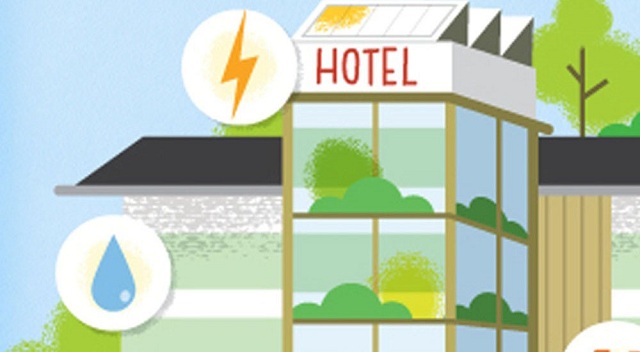
The Ministry of Tourism in collaboration with the Ministries of Environment & Energy and Investment & Development, is planning the Save program for existing tourist accommodation. The action will be announced by the Ministry of Environment & Energy with resources from the Operational Program EPANEK 2014-2020 of the Ministry of Development & Investment.
The aim of the program is to strengthen the interventions for the improvement of the energy efficiency of the operation of the enterprises and the building stock of professional use as well as the achievement of sustainable entrepreneurship, through energy savings.
The Save program is planned to be implemented in two phases. In the first phase, the beneficiaries will be medium, small and very small enterprises (tourist accommodation), with a budget estimated at € 100 million in public expenditure. The action will be implemented in accordance with the de minimis Regulation.
In the 2nd phase, and with the condition that additional resources will be secured, beneficiaries will be only large hotel units and the implementation of the program will follow the provisions of the General Exemption Regulation 651/2014 (SOURCE: prot. No. GRNET 148 / 03.02.2021 )
According to the announcements made in the parliament by Mr. Skrekas, RIS intends to use money from both the NSRF and the European Funds, as well as the Recovery Fund. More specifically, public expenditure is planned to reach 600 million euros, of which 100 million euros will come from the NSRF, while another 500 million euros have been included in the Recovery Fund. With the leverage of these amounts, it is estimated that resources of 1 billion euros can be mobilized for the energy upgrade of very small, small and medium enterprises in the next 2-3 years.
In terms of eligible costs, these will include:
The energy upgrade of the building infrastructure, ie interventions in the shell of the buildings, in order to improve the thermal permeability
Heating-cooling systems
Use of renewable energy sources to meet energy needs.
Energy storage systems
Installation of "smart" energy management systems
Water management - saving systems
Waste management
Use of smart electric vehicles as well as other support actions.
As for the eligibility criteria, these will be economic, but also natural criteria for prioritization in terms of energy upgrade. At the same time, climatic criteria will be introduced, for the degree days of each area, ie based on how many days of the year are very cold or very hot and therefore a lot of energy is consumed for cooling or heating the buildings. RIS intends to have specific criteria for objective evaluation, which will be reached by the ministry in collaboration with the Technical Chamber of Greece.





